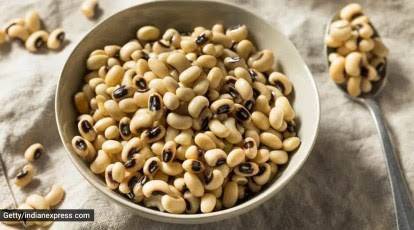Why People Pass Gas After Eating Beans And What It Means To Their Health
Passing gas after eating beans is a common phenomenon that occurs due to the digestive process and the composition of beans. Beans contain complex carbohydrates, particularly oligosaccharides like raffinose and stachyose, which the human body cannot fully digest. Unlike simple sugars, these carbohydrates reach the large intestine undigested, where they become a food source for the bacteria that reside there.
The digestive process of beans involves the breakdown of these complex carbohydrates by the bacteria in the large intestine. This process produces gas, including nitrogen, oxygen, carbon dioxide, and hydrogen. The gas is then released from the body through the anus, resulting in the characteristic sound and smell associated with passing gas.
The Science Behind Bean-Induced Gas
The primary culprits behind bean-induced gas are the oligosaccharides raffinose and stachyose. These complex carbohydrates are composed of multiple sugar molecules bonded together. The human body lacks the enzymes necessary to break down these bonds, allowing the oligosaccharides to pass into the large intestine undigested.
In the large intestine, the bacteria that reside there, such as Bifidobacterium and Lactobacillus, feed on the undigested oligosaccharides. This process involves the breakdown of the complex carbohydrates into simpler sugars, which are then fermented by the bacteria. The byproduct of this fermentation process is gas, including nitrogen, oxygen, carbon dioxide, and hydrogen.
The Impact of Bean-Induced Gas on Health
While passing gas after eating beans can be embarrassing and uncomfortable, it is generally not a cause for concern. However, in some cases, excessive gas production can lead to bloating, discomfort, and abdominal pain.
Individuals who experience persistent or severe gas and bloating after eating beans may want to consider speaking with a healthcare professional. They can help determine the underlying cause of the symptoms and provide guidance on how to manage them.
In addition, some individuals may experience gas and bloating due to an underlying medical condition, such as irritable bowel syndrome (IBS), small intestine bacterial overgrowth (SIBO), or gastroparesis. If you are experiencing persistent or severe gas and bloating, it is essential to seek medical attention to rule out any underlying conditions.
Ways to Reduce Bean-Induced Gas
While it is impossible to eliminate gas production entirely, there are several ways to reduce the amount of gas produced after eating beans:
1. Soaking and cooking beans: Soaking and cooking beans can help break down some of the complex carbohydrates, making them easier to digest.
2. Using digestive enzymes: Certain digestive enzymes, such as Beano, can help break down the oligosaccharides in beans, reducing gas production.
3. Eating smaller portions: Eating smaller portions of beans can help reduce the amount of gas produced.
4. Avoiding other gas-producing foods: Avoiding other gas-producing foods, such as cabbage, broccoli, and onions, can help reduce the overall amount of gas produced.
5. Drinking plenty of water: Drinking plenty of water can help flush out the digestive system and reduce the amount of gas produced.
The Role of Fiber in Bean-Induced Gas
Fiber is an essential nutrient that plays a crucial role in maintaining a healthy digestive system. Beans are an excellent source of dietary fiber, containing both soluble and insoluble fiber.
Soluble fiber dissolves in water and forms a gel-like substance that helps slow down the digestion of food. Insoluble fiber, on the other hand, does not dissolve in water and helps add bulk to stool.
While fiber is essential for maintaining a healthy digestive system, it can also contribute to gas production. The bacteria in the large intestine feed on the fiber in beans, producing gas as a byproduct.
However, the benefits of fiber far outweigh the potential drawbacks. A high-fiber diet can help promote regular bowel movements, prevent constipation, and support healthy blood sugar levels.
The Impact of Bean-Induced Gas on Social Relationships
Passing gas after eating beans can be embarrassing and uncomfortable, especially in social situations. The sound and smell associated with passing gas can be humiliating, leading to feelings of anxiety and self-consciousness.
However, it's essential to remember that passing gas is a natural bodily function that everyone experiences at some point. Rather than feeling embarrassed or ashamed, it's better to laugh it off and move on.
In addition, there are several ways to minimize the impact of bean-induced gas on social relationships. For example, eating beans in moderation, avoiding other gas-producing foods, and drinking plenty of water can help reduce the amount of gas produced.
Conclusion
Passing gas after eating beans is a common phenomenon that occurs due to the digestive process and the composition of beans. While it can be embarrassing and uncomfortable, it is generally not a cause for concern. However, individuals who experience persistent or severe gas and bloating may want to consider speaking with a healthcare professional to rule out any underlying medical conditions.
By understanding the science behind bean-induced gas and taking steps to reduce gas production, individuals can enjoy the nutritional benefits of beans while minimizing the discomfort associated with gas and bloating.


